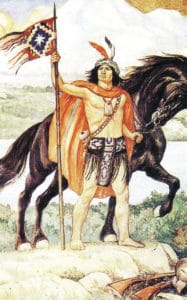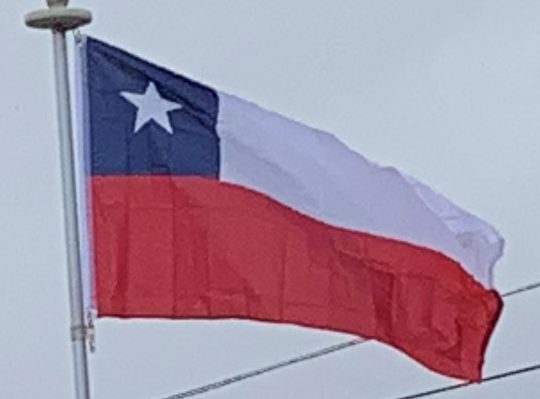Other theories say Chile may derive its name from a Native American word meaning either “ends of the earth” or “sea gulls”; from the Mapuche word chilli, which may mean “where the land ends;” or from the Quechua chiri, “cold”, or tchili, meaning either “snow” or “the deepest point of the Earth”. Another origin attributed to chilli is the onomatopoeic cheele-cheele—the Mapuche imitation of the warble of a bird locally known as trile.
The Spanish conquistadors heard about this name from the Incas, and the few survivors of Diego de Almagro‘s first Spanish expedition south from Peru in 1535–36 called themselves the “men of Chilli”. Ultimately, Almagro is credited with the universalization of the name Chile, after naming the Mapocho valley as such. The older spelling “Chili” was in use in English until at least 1900 before switching to “Chile”.
History:
Early History:
Stone tool evidence indicates humans sporadically frequented the Monte Verde valley area as long as 18,500 years ago. About 10,000 years ago, migrating indigenous Peoples settled in fertile valleys and coastal areas of what is present-day Chile. Settlement sites from very early human habitation include Monte Verde, Cueva del Milodón and the Pali-Aike Crater’s lava tube.

The Incas briefly extended their empire into what is now northern Chile, but the Mapuche (or Araucanians as they were known by the Spaniards) successfully resisted many attempts by the Inca Empire to subjugate them, despite their lack of state organization. They fought against the Sapa Inca Tupac Yupanqui and his army. The result of the bloody three-day confrontation known as the Battle of the Maule was that the Inca conquest of the territories of Chile ended at the Maule river.
Spanish Colonization:
In 1520, while attempting to circumnavigate the globe, Ferdinand Magellan discovered the southern passage now named after him (the Strait of Magellan) thus becoming the first European to set foot on what is now Chile. The next Europeans to reach Chile were Diego de Almagro and his band of Spanish conquistadors, who came from Peru in 1535 seeking gold. The Spanish encountered various cultures that supported themselves principally through slash-and-burn agriculture and hunting.
The conquest of Chile began in earnest in 1540 and was carried out by Pedro de Valdivia, one of Francisco Pizarro’s lieutenants, who founded the city of Santiago on 12 February 1541. Although the Spanish did not find the extensive gold and silver they sought, they recognized the agricultural potential of Chile’s central valley, and Chile became part of the Spanish Empire.
Conquest took place gradually, and the Europeans suffered repeated setbacks. A massive Mapuche insurrection that began in 1553 resulted in Valdivia’s death and the destruction of many of the colony’s principal settlements. Subsequent major insurrections took place in 1598 and in 1655. Each time the Mapuche and other native groups revolted, the southern border of the colony was driven northward. The abolition of slavery by the Spanish crown in 1683 was done in recognition that enslaving the Mapuche intensified resistance rather than cowing them into submission. Despite royal prohibitions, relations remained strained from continual colonialist interference.
